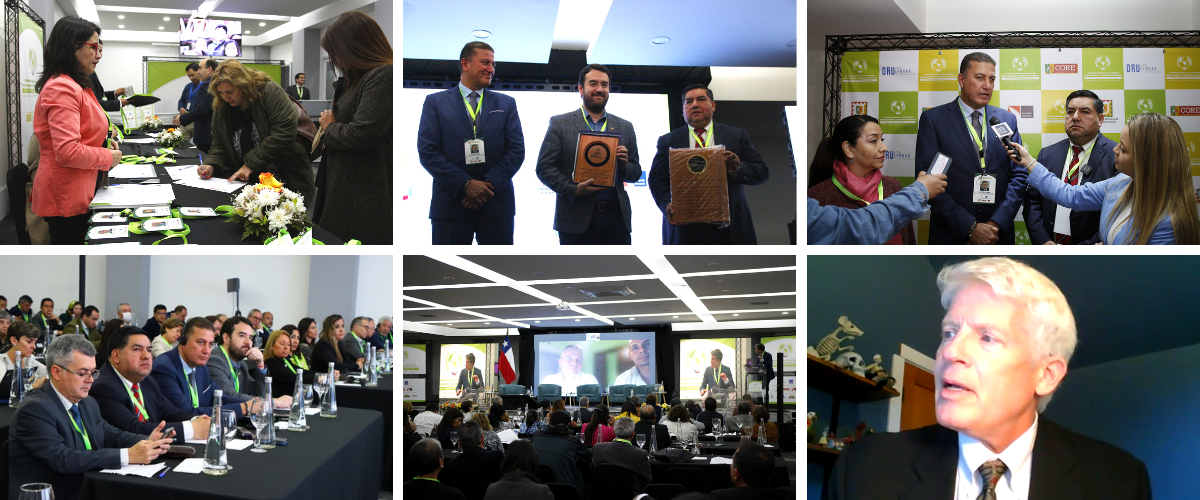The regions are committed to Food Sovereignty

The IV “Zero Hunger” Summit was not the first time that ORU Fogar debated whether the ideal concept was Food Security or Food Sovereignty. At the Turin Local Economic Development Forum in 2015 there was already a great debate on the subject. Should the ORU Food Safety Côre Group change its name? On that occasion the name “Security” was kept. In 2020, with a very important Latin American presence, the group was renamed the Côre Group of Food Sovereignty. Never as in this Temuco Summit (Chile), however, the commitment in favor of sovereignty had been so clear.
Food Security, it was said, points to the availability and sufficiency of food, regardless of its origin. This means that they can end up buying the products from distant destinations, with the perverse effect that the countries become indebted and end up being dependent. Thus, they opted for a situation where food is not only available, but also strengthens the local economy, generates income for native farmers and contributes to maintaining the biodiversity of the place.
In the space dedicated to this topic, a European, an African and an American participated. The general secretary of ORU Fogar, Carles Llorens, European, presented the conceptual framework of the debate. He explained that the concept of "food security" arose from the 1974 World Food Conference when, after the 1973 oil crisis, there were fears of product shortages. There is talk of sovereignty from 1996 when some perverse effects of globalization are seen. Llorens pointed out how positive it is that a global food market allows Europe to buy tomatoes from Morocco, the North to buy bananas from Ecuador, as well as coffee and cocoa from so many countries in Africa or America. "This does not mean that we must preserve important spheres of sovereignty, because we cannot entrust our sustenance to an international trade that is increasingly vulnerable to any eventuality." Thus, he was in favor of local consumption, of KM0, of protecting designations of origin or proposals such as those of Slow Food.
The president of the Association of Departments of Senegal, Adama Diouf, pointed out that in Africa there are sufficient resources for the continent to be self-sufficient: quality agricultural land, water and a remarkable agricultural culture. He pointed out that Africa needs to improve the mechanization of its agriculture, while developing a powerful agri-food industry. "The challenge," he explained, "is to produce enough quantity and quality to feed us." Diouf explained that, by law, today, in Senegal, the land is considered a "national property", which is intended to stop the speculation of agricultural land that was taking place in Africa.
Jesus Quispe, a Peruvian expert on Andean Food Security, explained that the priority of all levels of government in Peru is to have well-nourished children. “This -he said- is the agenda of the national, regional and local governments”. For those who were managers of the Andes Regional Association, in their territories, the quality of food depends on having native products. "Our food sovereignty -he affirmed- goes through our territorial food security". Thus, he was in favor of basing the nutrition of the Andean inhabitants on the rich food diversity of their lands.
An interesting counterpoint to this debate was the intervention of Ignasi Rodríguez, head of foreign relations, Regional Ministry of Climate Action, Food and Rural Agenda, of the Government of Catalonia. He stated that, in territories such as the European ones, today, it was a chimera to aspire to "food sovereignty". “Our markets -he affirmed- are supplied with food from different latitudes. We do not aspire to be self-sufficient, but to significantly increase the area of cultivated land, which in recent decades has significantly decreased. The Catalan representative, at this point, defended the goodness of products with designation of origin and the guarantee offered by these certificates, approved by the European Union and recognized by all European consumers.
Very diverse were the interventions that defended products with denomination of origin, organic agriculture or the need to bring fields, markets and homes closer together. Víctor Serrano, director of the IMIDA Institute, from the government of Murcia, Spain, explained, for example, that in his region there are 8 denominations of origin (with national regulations), 4 protected geographical indications (with regional regulations) and another traditional with an specialty European guarantee. They work also with other quality labels which, as in the case of Organic Farming, allow products to be differentiated by the techniques used in their production. He also mentioned the initiatives to recover traditional varieties which, in recent years, have disappeared from the commercial circuits. Among all these interventions, the one by Roberto Carcangiu, chef and president of the Professional Association of Italian Chefs, was especially significant. Defender of common sense in the kitchen and author of several books on Italian regional cuisine, he was in favor of local cuisine.
Photo album of the IV Summit here








































































